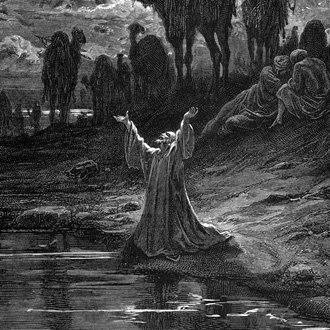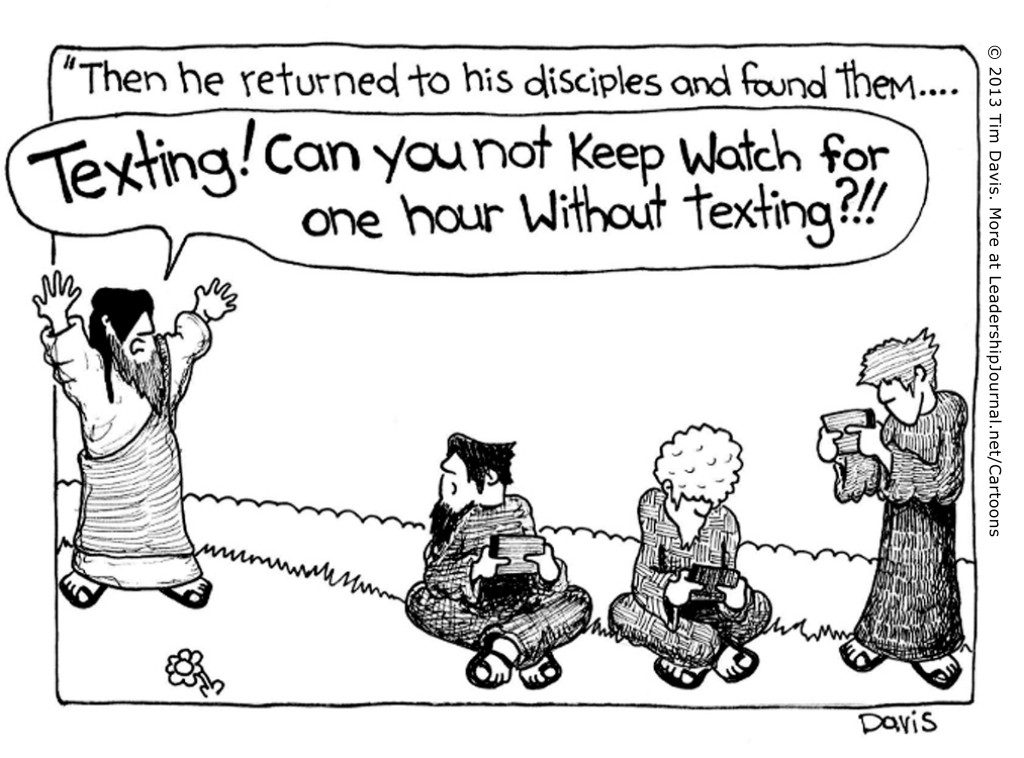 We believe that prayer is vital to a life of faith. Skeptics may view it as merely talking aloud to an imagined deity, but that is not our problem. The problem we face with prayer is when it seems to go unanswered. When I think of biblical examples, two come immediately to mind. The first is found in the prophet’s prayer in Habakkuk 1:1-4. Perhaps you’ve prayed using similar words:
We believe that prayer is vital to a life of faith. Skeptics may view it as merely talking aloud to an imagined deity, but that is not our problem. The problem we face with prayer is when it seems to go unanswered. When I think of biblical examples, two come immediately to mind. The first is found in the prophet’s prayer in Habakkuk 1:1-4. Perhaps you’ve prayed using similar words:
How long, Lord, must I call for help,
but you do not listen?
Or cry out to you, “Violence!”
but you do not save?
Why do you make me look at injustice?
Why do you tolerate wrongdoing?
Destruction and violence are before me;
there is strife, and conflict abounds.
Therefore the law is paralyzed,
and justice never prevails.
The wicked hem in the righteous,
so that justice is perverted.
 God answered Habakkuk’s prayer, but not in the way he expected.
God answered Habakkuk’s prayer, but not in the way he expected.
Having prayed for the injustice in Judean society to be corrected, Habakkuk was stunned when God’s answer was that the nation would be invaded by the Babylonians and carried into captivity. Instead of hearing what he hoped would amount to divine justice, Habakkuk was told that he would have to endure even more injustice. He didn’t complain nor did he deny God’s existence for not answering in the way he expected. Instead, Habakkuk received God’s answer and carried on—he was changed by prayer.
 The second example of seemingly unanswered prayer is that of Jesus praying in Gethsemane. There, in agony, anticipating the painful sacrifice that lay ahead, Jesus pleaded with God the Father: “Is there no other way?”
The second example of seemingly unanswered prayer is that of Jesus praying in Gethsemane. There, in agony, anticipating the painful sacrifice that lay ahead, Jesus pleaded with God the Father: “Is there no other way?”
Jesus returned to this prayer after checking on his disciples, his closest friends on earth. They were asleep and after waking them, he returned to entreat God with the same question: “Is there no other way?”
Jesus then went again to seek the comfort of his friends, but they were still asleep. Then the cycle repeated itself once more.
 Copyright 2013, Tim Davis. Reprinted from Leadership Journal. Copyright 2013, Tim Davis. Reprinted from Leadership Journal. |
My perspective is that when Jesus saw his disciples sleeping the third time, he realized the answer to his seemingly unanswered prayer. That his closest friends could not comply with his request to merely stay awake, showed Jesus that all humanity ultimately fails due to its brokenness. Thus the answer to his prayer was clear—there was no other way. Though his coming death, resurrection and ascension were not the answer that Jesus sought at that moment, he willingly submitted and carried on. He did so even with joy, anticipating what would be accomplished for his disciples and for all humanity (Hebrews 12:2).
As you know, Jesus added a supplemental clause to his prayer. To borrow from the world of insurance terminology, he added “a rider.” He begins with the words, “If there be any way that this cup can pass from me…” and then the rider: “…yet not what I will but what you will.” Jesus’ prayer was not simply a request, much less a demand. Rather it showed his complete trust in his heavenly Father. His prayer demonstrated faith lived out in action.
Though we tend to see prayer as what we say with our voices, God views it as what we do with our whole lives—all that we say, think, hope, love, believe and desire. God’s answer to our prayer thus addresses all that we (and, ultimately, all humanity) are and need to become in relationship to him. Wouldn’t any answer from God less than that be superficial? I’m sure we’re all thankful that God has not said “Yes” to all of our requests!
Certainly, we can verbalize our prayers to God. But since God’s relationship with us extends far beyond just listening to our words, his answers to our prayers involve more than just a snap judgment of “Yes,” “No,” or “Wait.” In prayer, we not only talk to God but also seek to discern how God is responding to us—trusting that his every response is one of loving us towards maturity in Christ. So while God may say “No” to one of our particular requests, that “No” always comes out of his wisdom and compassion for us as whole persons and so should not be regarded as a rejection of us, but as an affirmation of us as his children. Our heavenly Father is wiser and more loving than we are and so are his answers to our prayers.
I’m not suggesting here that God’s answers to our prayers only involve what he does to change us spiritually and never involve changing our circumstances, relationships and physical conditions or those of others. God is omnipresent and sees and knows the needs of everyone before we observe them. He already has his plan of redemption in motion that includes everyone, even the whole of creation. Prayer is our way of joining him in what he is doing in us, in others and in our world. However, we must be the first to understand that we do not always know what is best for all concerned, or just how he is going to accomplish all that he is doing to bring about his redemptive purposes. God’s answer to prayer takes into consideration all of time, all of space and all of creation. So we entrust all our prayers to him, trusting him to exercise his loving wisdom in his every answer. We can count on his answers to always exhibit the same wisdom and compassion we see lived out in Jesus Christ, the Son of God incarnate, crucified, resurrected, ascended and coming again in the glory of his kingdom.
Rather than becoming weary in prayer and well-doing, we can carry on as did Habakkuk and Jesus. A life of prayer offered to the living, redeeming God will always remind us that our own efforts will not bring the ultimate solutions to humanity’s problems. We need God’s saving, redeeming and transforming power. We acknowledge that we lack the wisdom and all-encompassing compassion that God exercises in deciding just how he will realize his saving purposes. Incorporating our prayers into his loving and wise purposes, God will use them to help us become the Christ-like person he intends for us to be. With that perspective, we will pray more and more like Jesus—from the depths of our hearts, gladly echoing his rider, “Yet not my will, but yours be done.”
Yours in Christ’s service,
Joseph Tkach

